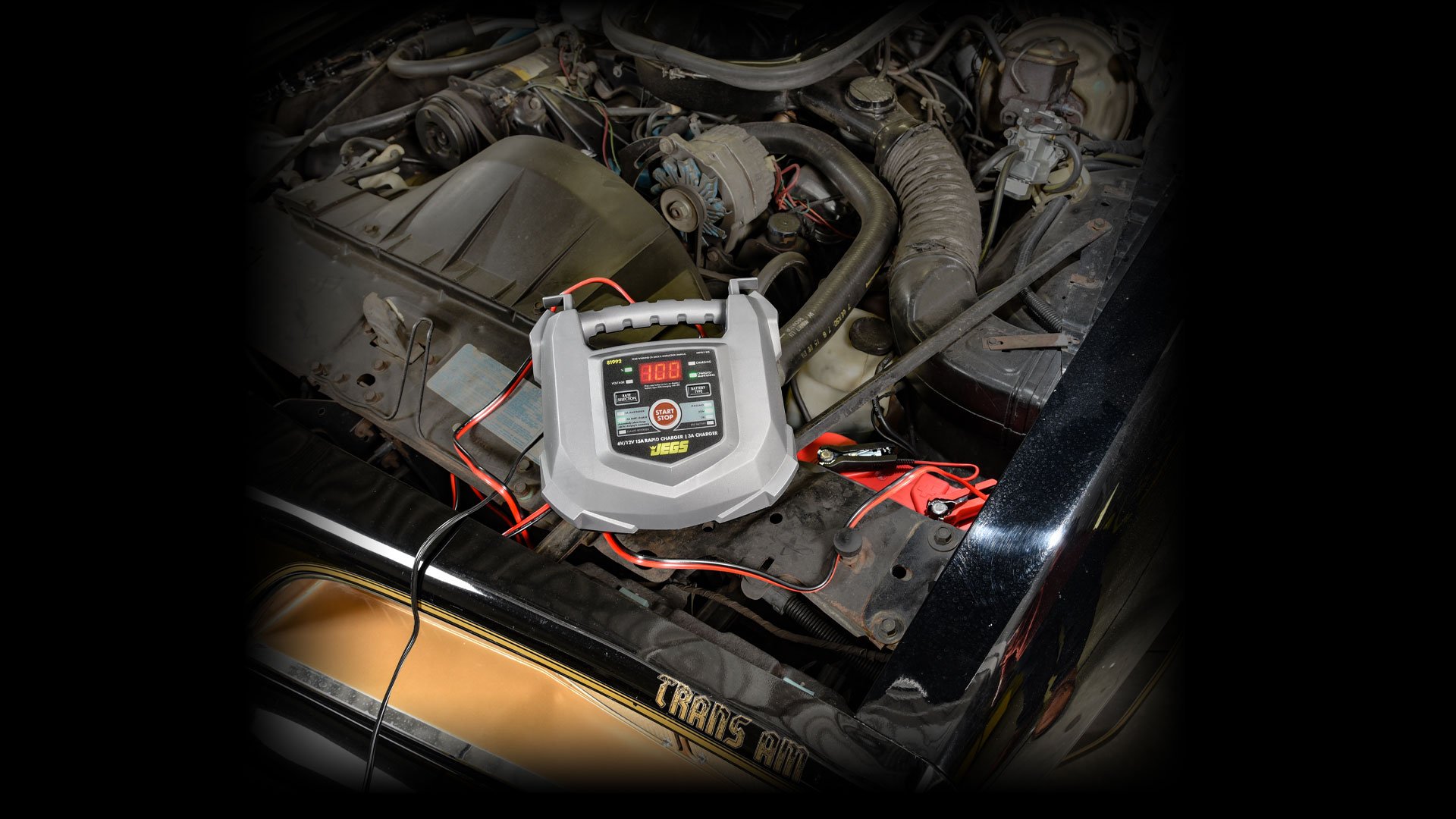Car Batteries & Parts
Upgrading your battery with a performance unit is a great way to add electrical power and decrease weight on your street or racing vehicle. JEGS offers a wide selection of high-performance automotive batteries, battery mounting kits, battery switches, and other car battery accessories from leading manufacturers such as XS Power, Optima Batteries, Braille Battery, Odyssey Batteries, Turbostart, and more. Each car battery is backed by an industry-leading warranty so you can get the performance you want at a price you can afford with the assurance you need.
What Are the Parts of a Car Battery?
A car battery is a vital component of your vehicle's electrical system, and it consists of several key parts that work together to supply power to your car. Understanding these components is essential for maintaining and troubleshooting your battery. Here are the main parts of a car battery:
1. **Plastic Case:** The plastic case houses all the internal components of the battery and provides insulation and protection.
2. **Positive (+) Terminal:** This is the terminal through which the battery supplies power to your vehicle's electrical system. It is typically marked with a plus sign (+).
3. **Negative (-) Terminal:** The negative terminal is connected to the vehicle's chassis and completes the electrical circuit. It is usually marked with a minus sign (-).
4. **Lead Plates:** Car batteries contain a series of lead plates submerged in a mixture of water and sulfuric acid. These plates are responsible for storing and discharging electrical energy.
5. **Separator:** Separators made of insulating material, often polyethylene, prevent direct contact between the positive and negative plates while allowing ion flow.
6. **Electrolyte:** The electrolyte is a solution of water and sulfuric acid that facilitates the chemical reaction between the lead plates, generating electrical energy.
7. **Vent Caps:** Vent caps on the top of the battery allow gases produced during charging to escape while preventing external contaminants from entering.
Understanding these parts can help you diagnose battery issues and ensure proper maintenance, such as checking the fluid level and cleaning terminals.
What Are the Different Types of Car Batteries?
Car batteries come in various types, each designed for specific purposes and vehicles. Here are the different types of car batteries you might encounter:
1. **Lead-Acid Batteries:** These are the most common car batteries and are further divided into two subtypes:
- **Flooded Lead-Acid (FLA) Batteries:** These are traditional batteries with removable caps for adding distilled water.
- **Sealed Lead-Acid (SLA) Batteries:** Also known as maintenance-free batteries, these are sealed and do not require adding water.
2. **Absorbent Glass Mat (AGM) Batteries:** AGM batteries are a type of SLA battery known for their high performance, maintenance-free operation, and ability to handle deep discharges.
3. **Gel Cell Batteries:** Gel cell batteries use a gel-like electrolyte and are ideal for deep cycling applications, such as in recreational vehicles (RVs) and boats.
4. **Lithium-Ion (Li-ion) Batteries:** Lithium-ion batteries are becoming increasingly popular due to their lightweight, high energy density, and longevity. They are commonly used in hybrid and electric vehicles.
The choice of battery type depends on your vehicle's requirements, climate, and intended use. It's essential to select the right battery to ensure reliable starting and electrical performance.
How Much Do Car Battery Parts Cost?
The cost of car battery parts can vary depending on several factors, including the type of battery, brand, and the specific component you need to replace. Here's a general price range you can expect:
- **Replacement Battery:** A new car battery typically ranges from $50 to $200 or more, depending on the type and brand. High-performance and premium batteries may be at the higher end of this range.
- **Terminal Cleaning Kit:** A terminal cleaning kit, which includes a brush and cleaning solution, usually costs between $5 and $15.
- **Battery Terminal Protectors:** Terminal protectors designed to prevent corrosion can be found for as little as $2 to $5 each.
- **Battery Hydrometer:** A hydrometer for checking the specific gravity of battery electrolyte may cost around $10 to $20.
Keep in mind that labor costs for battery replacement may apply if you have a professional mechanic install the battery. Regular maintenance, such as cleaning terminals and adding distilled water (for FLA batteries), is essential to extend battery life and minimize replacement costs.
